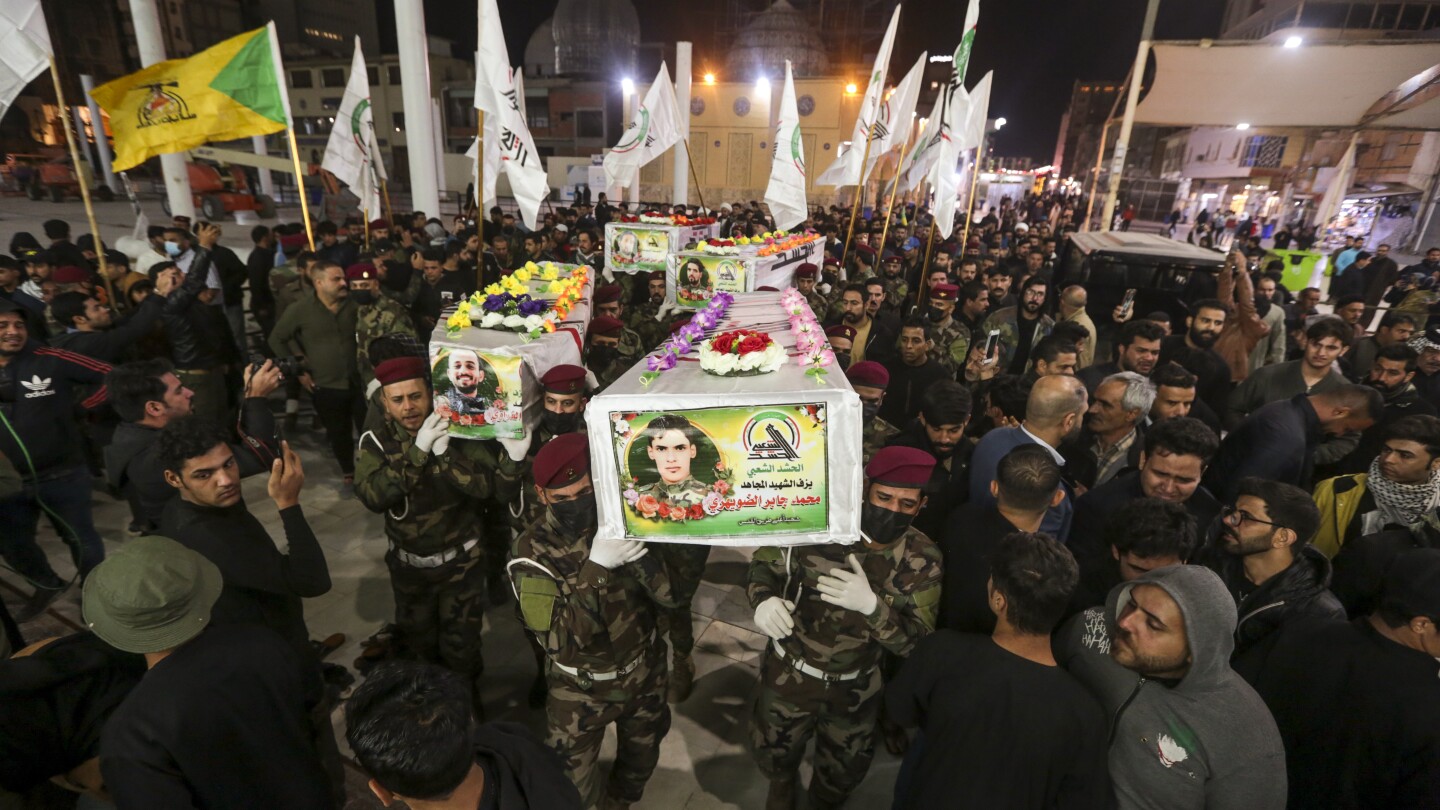Dozens of attacks on U.S. military facilities by Iran-backed factions in Iraq over the past two months as the Israel-Hamas war has raged have forced Baghdad into a balancing act that’s becoming more difficult by the day.
A rocket attack on the sprawling U.S. Embassy in Baghdad on Friday marked a further escalation as Iraqi officials scramble to contain the ripple effects of the latest Middle East war.
Iran holds considerable sway in Iraq and a coalition of Iran-backed groups brought Iraqi Prime Minister Mohammed Shia al-Sudani to power in October 2022. At the same time, there are some 2,000 U.S. troops in Iraq under an agreement with Baghdad, mainly to counter the militant Islamic State group.



This is the best summary I could come up with:
A rocket attack on the sprawling U.S. Embassy in Baghdad on Friday marked a further escalation as Iraqi officials scramble to contain the ripple effects of the latest Middle East war.
Iran holds considerable sway in Iraq and a coalition of Iran-backed groups brought Iraqi Prime Minister Mohammed Shia al-Sudani to power in October 2022.
During a recent trip to the region, CIA Director William Burns warned al-Sudani of “harsh consequences” if Iraq doesn’t act to stop the attacks, an Iraqi official said.
A week after the Iraqi premier’s diplomatic efforts, the United States extended Iraq’s sanctions waiver by four months to purchase Iranian electricity.
Unlike Lebanon’s Hezbollah group, seen as Iran’s most powerful proxy in the region, Iraq’s militias have so far only played a limited role in the conflict.
Should Iran and allies choose to escalate, al-Sudani’s government will likely be unable to rein them in or prevent consequences on Iraqi soil, said Iyad al-Anbar, a political science professor at Baghdad University.
The original article contains 896 words, the summary contains 164 words. Saved 82%. I’m a bot and I’m open source!